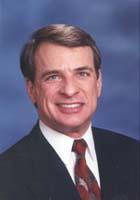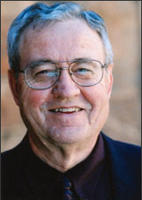New High-Priests of Evangelicalism



I recently read an excellent post by Mike Russel in which he points out a new trend within the evangelical church. I felt rather dull for failing to notice this myself. The observation is this: for the past decade or so, the high-priests of Christianity have been the psychologists and counselors -- Crabb, Cloud, Narramore, Allender, Dobson, etc. That ethos is shifting now, to philosophers. Here's how Mike put it:
Now the garb of high priesthood is being passed to another, perhaps more fitting group of Christian experts that appear to be poised to take the Christian community in a different direction. The new high priesthood, if I am correct, are those Christian philosophers who books are becoming more and more popular and whose voices are being heeded with greater and greater frequency.As a disciples of these philosophers, I can say, "Amen." Now, don't get me wrong. I think I have all of Larry Crabb's books -- Inside Out changed my life. I would not want to see good Christian psychology tossed into the church's recycling bin. But the new guard of philosophers will be able to blaze trails that were simply inaccesible to others. They will bring a clarity and precision to Christian thought that is desperately needed.
It is an impressive group, including such solid thinkers as Willard, Moreland, Craig, Geisler, and Groothuis. There are many more. (The patron saint, arguably, is Alvin Plantinga, the Notre Dame professor of philosopy whom Christianity Today stated was the leading philosopher - Christian or otherwise - of our day.) Whether intentionally or not, this group stands poised to assume the garments of high priesthood, thereby consummating an betrothal made decades ago with Francis Schaeffer.
In a very real sense, philosophers are better suited for this task than anyone. To be a philosopher is to be someone who thinks deeply about everything. Philosophers think about psychology, theology, spiritual formation, ecclesiology, academic integration, etc. Philosophers can help to make all these disciplines more proficient, more precise. Philosophers can help bring thinkers from all these various fields together, since philosophy is the foundation upon which they all rest.
Maybe you think this is all a bit premature. Maybe you think this shift is problematic. Let me know.


1 Comments:
Oh, if only this might turn out actually to be true! I'm not sure it is--though I think blogging could be a force to help turn that way. It seems the evangelical blogosphere is less oriented on self-help and more on apologetics and mission, compared to the average Christian bookstore. Time will tell.
I've worked professionally with Henry Cloud and I have a very high regard for him. He and the other psychologists you named have had a very positive impact on Christianity overall. Yet if what you say is true, it could potentially be indicating several very positive things:
It could mean that Western Christians are learning (and willing) to think. It was the retreat from intellectual work that cost us the fundamental/liberal battle a century ago.
It could mean that the work of the psychologists is bearing fruit. No counselor wants to see the same client forever, and something parallel should apply to their written work. Think how gratified Crabb, Cloud, Dobson, etc. would be if people bought fewer of their books because they needed them less.
It could mean that people are looking up and out, not merely at personal growth but at larger issues. (I'd like to see a corresponding upsurge in mission-related publishing.)
Post a Comment
<< Home